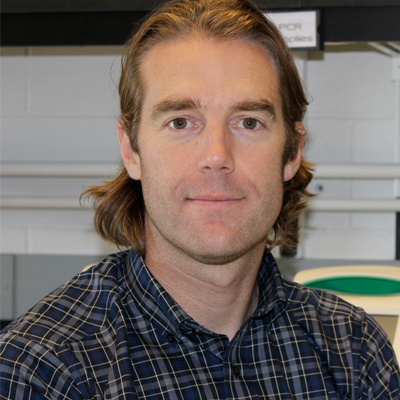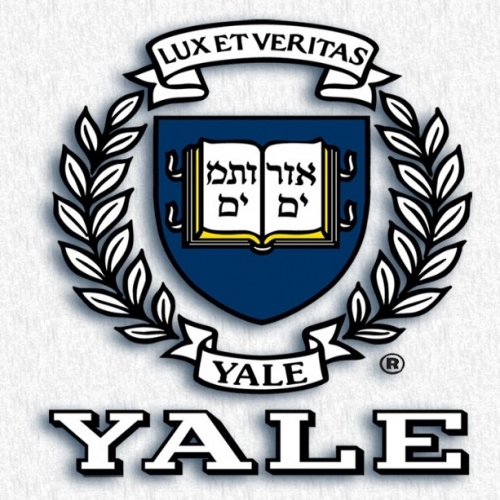Solutions that combat rapid environmental fluctuations due to climate change
The environment is facing three grand challenges: increasing populations will need food, environmental changes will reduce crop productivity, and demands for renewable energy sources are steadily rising. These grand challenges are strongly connected to the ways in which sustainable practices for the cultivation of plants can help strengthen our global community. Dr. Joshua Gendron, Assistant Professor of Molecular, Cellular, and Developmental Biology at Yale University, is increasing our understanding of how plants respond to the environment in order to ensure plant productivity in environments that are rapidly changing due to global warming. His research program has the potential to address each of the three grand challenges directly while bridging collaborations with other plant scientists and the community.
While research on plants has traditionally been difficult because plants have many genes that can do the same thing, the technology that Dr. Gendron and his team have developed bypasses this challenge. His technology uniquely tackles longstanding challenges in plant research and will be implemented to study how plants respond to changing environments in addition to creating crop plants that are more robust to ensure food security. In addition to the rigor of his research, Dr. Gendron is interested making environmental science accessible to the community. Due to this passion, he runs an outreach program called the Green Cafe that provides access to plant science resources for local middle and high school students as well as the greater New Haven community. Therefore, Dr. Gendron is a remarkable example of science for the benefit of the community. While his research has roots in deeply technical and sophisticated technologies, his focus remains on the impact upon the environment and the global community as well as his local community!
Current research includes:
-
Developing Technology: Dr. Gendron’s technology will help engineer crops to ensure food security despite climate change. His technological platform provides food engineers with sophisticated tools for developing better plants to withstand challenging conditions while making sense of how plants respond to changes in their environment.
- Community Outreach: The Green Cafe is an informal learning environment that Dr. Gendron hopes will provide access to the natural world to kids and adults that may spend most of their time in the city. He expects that the work in the community will have a great impact on the future of students, ensuring a diversity of inputs for the next generation of plant scientists. His partnership with the Pathways to Science program is currently tracking the efficacy of the Green Cafe to study the ways in which the program can grow to contribute to the community.
Bio
From a very young age, Dr. Joshua Gendron was extremely curious about natural environments. He was raised camping in the Sierra Mountains every summer, which had a dramatic effect on his life. He can remember exploring the forests all day looking for animals and wildflowers, being able to touch, feel, and smell many different plant species, and of course, searching for snakes and lizards to play with before letting them run away. After returning back home with his family, Dr. Gendron would continue to explore creeks and waterways in his neighborhood, catching tadpoles and watching them become frogs. Therefore, from a young age, he recognized the importance of the world around him.
In addition to exploring the natural world outside, Dr. Gendron felt a strong affinity for his science classes. It was exciting for him to read about how nature works, and about the mysteries of nature alongside classmates and enthusiastic teachers. As an undergraduate, he chose biology as a major and soon found that it was the right choice. At the University of California, San Diego, where he eventually earned his B.S., he learned about the genetic and molecular mechanisms that maintain life on earth. He knew very soon after starting his first college-level biology course that he would continue on to become a biologist.
In fact, at that time, he wanted to combine his love of the outdoors with biology and work as a park ranger or a government biologist. His research advisor, Dr. Joanne Chory, convinced him that he should get a Ph.D. in biology and then return to that goal. Therefore, after enrolling in Stanford’s Biological Sciences Ph.D. program, he soon found that biology research was his true passion and has since continued to pursue research as his lifetime profession.
Dr. Gendron believes that academic science “has provided [him] the opportunity to participate in the education of the next generation of scientists.” Therefore, mentoring future scientists -- his graduate students and postdocs -- is an important part of his career. With the goal of educating the community in mind, Dr. Gendron started a program called the Green Cafe which provides access to plant science and nature through the Marsh Botanical Garden to local students and community members in New Haven. This is a truly unique and important part of his research, since it helps ensure the future of plant science and creates room for diversity of opinions within the field.
Aside from research, in his free time, Dr. Gendron continues to go camping; as a father himself, he now brings his child into nature to explore.
Website: http://gendronlab.yale.edu/ and www.greencafe.yale.edu


